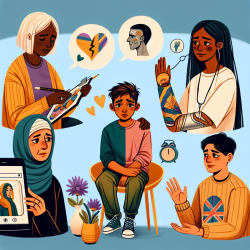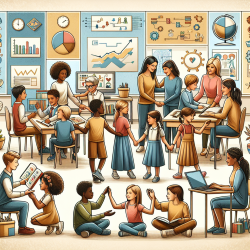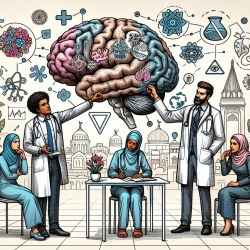The Covid-19 pandemic has exposed significant gaps in educational systems worldwide, highlighting the urgent need for curricular responsiveness. As educators, we must adapt our approaches to better prepare students for unforeseen global challenges. The research article "The significance of sense in the time of plagues: Curricular responsiveness to the Covid-19 crisis" by Hannah Spector provides a compelling framework for enhancing educational practices through the integration of literary allegory.
The Role of Literary Allegory
Literary allegory offers a unique lens through which students can explore complex global issues. By interpreting works of fiction as allegories, educators can guide students in understanding the broader implications of narratives and their relevance to current events. This approach not only enriches literary analysis but also fosters critical thinking and preventative foresight.
Understanding Preventative Foresight
Preventative foresight involves anticipating potential global risks and preparing students to address them proactively. Spector's article emphasizes the importance of cultivating this skill within the curriculum. By engaging with allegorical texts, students can develop a nuanced understanding of global interconnectedness and the ethical responsibilities that come with it.
Implementing Allegorical Analysis in Education
To effectively incorporate literary allegory into the curriculum, educators should consider the following strategies:
- Select Relevant Texts: Choose literary works that offer rich allegorical potential and resonate with contemporary issues. Fyodor Dostoevsky's "Crime and Punishment" is an example highlighted by Spector for its exploration of a world-shattering contagion.
- Facilitate Critical Discussions: Encourage students to analyze allegorical elements and their implications on current global challenges. Discussions should focus on drawing parallels between fictional scenarios and real-world events.
- Encourage Creative Interpretation: Allow students to interpret allegories creatively, fostering a deeper engagement with the text and its themes. This approach can lead to innovative solutions for addressing global crises.
- Integrate Interdisciplinary Perspectives: Collaborate with colleagues from different disciplines to provide diverse viewpoints on allegorical interpretations. This interdisciplinary approach enriches students' understanding of complex issues.
The Benefits of Allegorical Curriculum
Incorporating literary allegory into the curriculum offers several benefits:
- Enhanced Critical Thinking: Students develop critical thinking skills as they analyze complex narratives and draw connections to real-world situations.
- Improved Empathy and Understanding: Engaging with diverse perspectives within allegorical texts fosters empathy and a deeper understanding of global interconnectedness.
- Proactive Problem-Solving: By anticipating potential risks through allegorical analysis, students are better equipped to devise proactive solutions for future challenges.
A Call to Action for Educators
The integration of literary allegory into educational practices is not just an academic exercise; it is a call to action for educators to prepare students for an unpredictable future. By embracing this approach, we can empower students to navigate and address global crises with insight and innovation.
To further explore the insights from Hannah Spector's research, I encourage practitioners to read the original research paper: The significance of sense in the time of plagues: Curricular responsiveness to the Covid-19 crisis.










